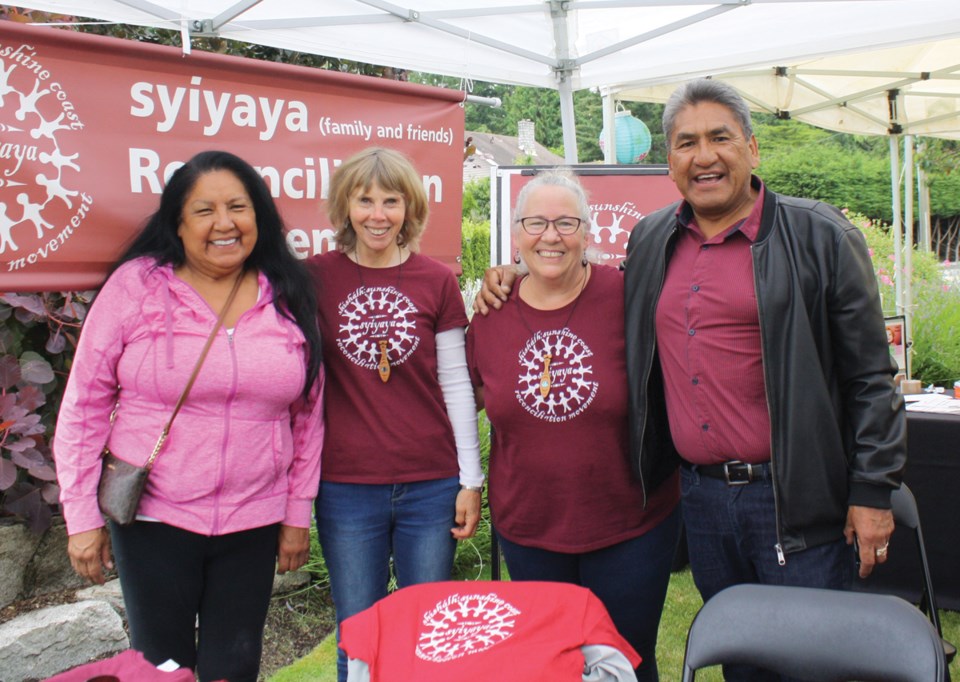More funding is coming to the syiyaya Reconciliation Movement, and plans are in the works to get started on blanket-weaving projects.
On top of the $30,000 donated by the Sunshine Coast Community Forest, as well as a grant from the Sunshine Coast Community Foundation, a boost of $7,500 is coming to the movement after Sunshine Coast Regional District (SCRD) directors approved the funding at a June 28 committee meeting.
Directors voted to provide funding following a presentation made earlier this year by former shíshálh chief Garry Feschuk and past Sechelt mayor Cam Reid, as well as a letter from organizers requesting funds. According to a staff report, “Supporting the syiyaya Reconciliation Project directly links to the board’s strategic priority of ‘Enhance collaboration with the shíshálh Nation,’ as well as facilitates community development and partnerships.” A final decision will be made at an upcoming board meeting.
So far, the group has raised approximately $45,000 of their $200,000 goal. They are hiring a grant writer on stipend to seek funding from sources such as the Anglican Church Healing Fund as well as federal grants. The group is also selling small tokens in the shape of paddles, as well as T-shirts and backpacks.
Syiyaya is a grassroots movement that was launched in April by Feschuk and Reid. Other organizers are Nancy and John Denham, Dale Sankey, Randy Joe, Valerie Bourne, Richard Till, Glen Martin, Siobhan Smith and Steven Feschuk.
The movement is intended to nurture and strengthen relationships between the Indigenous and non-Indigenous communities on the Sunshine Coast through cultural workshops, totem pole carving, blanket-weaving workshops and through a video documentary of the project. It initially began as a project but morphed into a movement when shíshálh elders made the suggestion, said Nancy Denham.
“This is the start of something. We’re doing it together,” she said. “It’s a journey. Reconciliation isn’t the destination, it’s a journey together.”
Projects associated with the movement are likely to take years to complete. For example, the cedar used to carve the totem pole will need to cure and won’t be ready for carving until at least 2019. In the meantime, organizers are hosting blanket exercises and dialogue circles upon request, and are approaching groups within the community to facilitate partnerships.
Organizers will be meeting with three weavers this week who have provided designs to confirm timeframes. “That’s really exciting for us,” Denham said.



